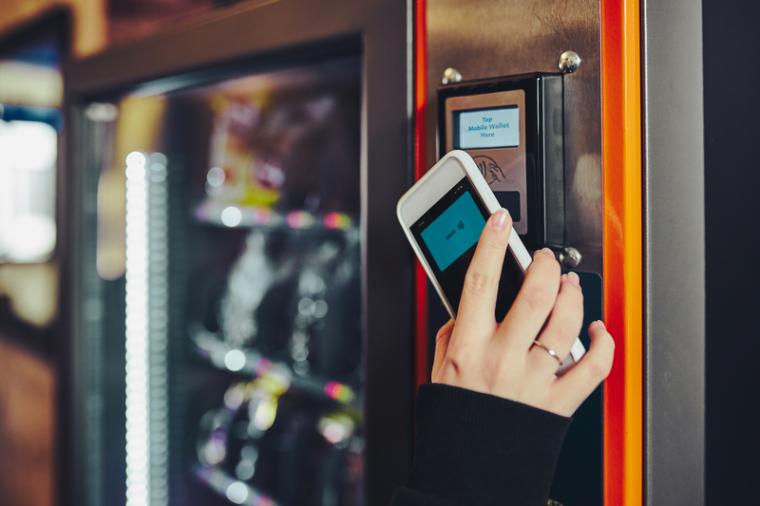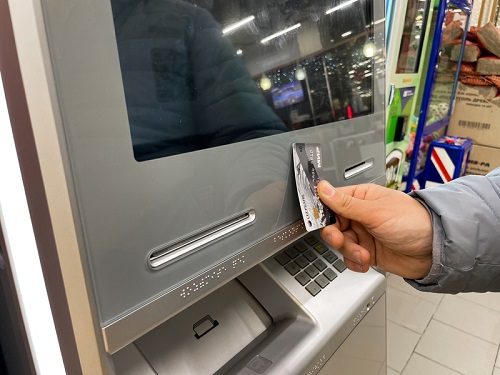
The trend of contactless vending at sporting events is reaching new levels, and that’s proving to be good for business.
As Athletic Business notes: “[S]ports fans are returning to stadiums and arenas in pre-pandemic numbers, and they’re doing so in part because their venue of choice has made a concerted effort to ensure that the game-day environment remains a safe and comfortable backdrop to the exciting action on the court or field.”
This is happening, according to the magazine, because facility operators and designers are “engineering a frictionless fan experience.” Indeed, digital tickets and cashless vending are the norm these days at most professional and collegiate sports venues.
PaymentsDive.com reports that “COVID-19 concerns expanded interest in not just cashless but speedier, contactless transaction,” and Deloitte has gone so far as to declare that “the future of sports venues is contactless.”
Here are updates on three of the latest venues to deliver new technology to help guests feel safer and get back to their seats faster:
• Fenway Park Introduces Instacart Caper Counter
One of the newest artificial intelligence (AI)-based point-of-sale systems debuted at America’s oldest baseball stadium in April. The contact-free Instacart Caper Counter checkout experiences are available at select locations in Boston’s Fenway Park via a partnership with the venue’s food and beverage partner, Aramark Sports + Entertainment.
 According to ChainStoreAge.com:
According to ChainStoreAge.com:
Caper Counter leverages AI functionality, including computer vision and sensor fusion technology, to visually detect and identify items based on their shape, color, key features and sizes. Customers can place packaged food and beverage items, such as peanuts, soda, beer and candy, for purchase on Caper Counter, where they will be automatically detected and added to the cart for checkout.
Customers then select “pay” and choose from either a credit card, loaded ticket or team rewards as their method of payment, and can then take their food and beverages, completing a seamless, autonomous transaction.
• NRG Stadium Warms to Ice House Express
Attendees of the weeks-long Houston Livestock Show and Rodeo earlier this year at NRG Stadium were able to save time at Ice House Express — a checkout-free shopping experience that is the arena’s second such store powered by Zippin.
Shoppers tap a credit card to enter Ice House Express and then select the items they want. Zippin’s AI software automatically identifies the items, using overhead cameras and sensors, and adds them to a virtual shopping cart. The consumer then can put the items in their pocket, bag, purse, or simply carry them out. No checkout is required. When they exit, the purchases are automatically charged, and a receipt is available online.
• New York Islanders Encourage Fans to ‘Just Walk Out’ at UBS Arena
Two convenience-oriented stores opened in April at UBS Arena in Belmont Park, N.Y. — becoming the first New York sports and entertainment venue to feature Amazon’s Just Walk Out technology.
Like visitors to NRG Stadium’s Ice House Express, fans visiting UBS Arena’s Just Walk Out-enabled stores — branded “On the Fly” and operated by the arena’s foodservice partner, Delaware North — can insert their credit card at the entry gates to shop. Once they’re inside, anything anybody takes off the shelf is automatically added to a virtual cart, and anything put back on the shelf comes out of the virtual cart. Available items include beer, spiked seltzers, soda, bottled water, chips and candy. When guests have completed their shopping experience, they will be able to leave the store with their goodies, and the credit card they inserted will be charged for the items they took.
UBS Arena opened in 2021, a fact that has made venue officials even more cognizant of fan expectations in the COVID era.
“We were in the fortunate, or unfortunate, position of being right in the middle of the virus when we were under construction. It was early enough for us to realize that we had to make some really big adjustments to conform to what was going to be expected in terms of health and hygiene accommodations in the facility,” Hank Abate, president of arena operations for the facility, told Athletic Business. “I don’t think we originally intended to be cashless at first, but I think that the pandemic pushed us to make that final decision. We wanted to eventually go cashless but realized that there was some hesitation on the part of some consumers and the safe thing was being ticketless, but I think the pandemic helped us move that decision along much quicker.”

